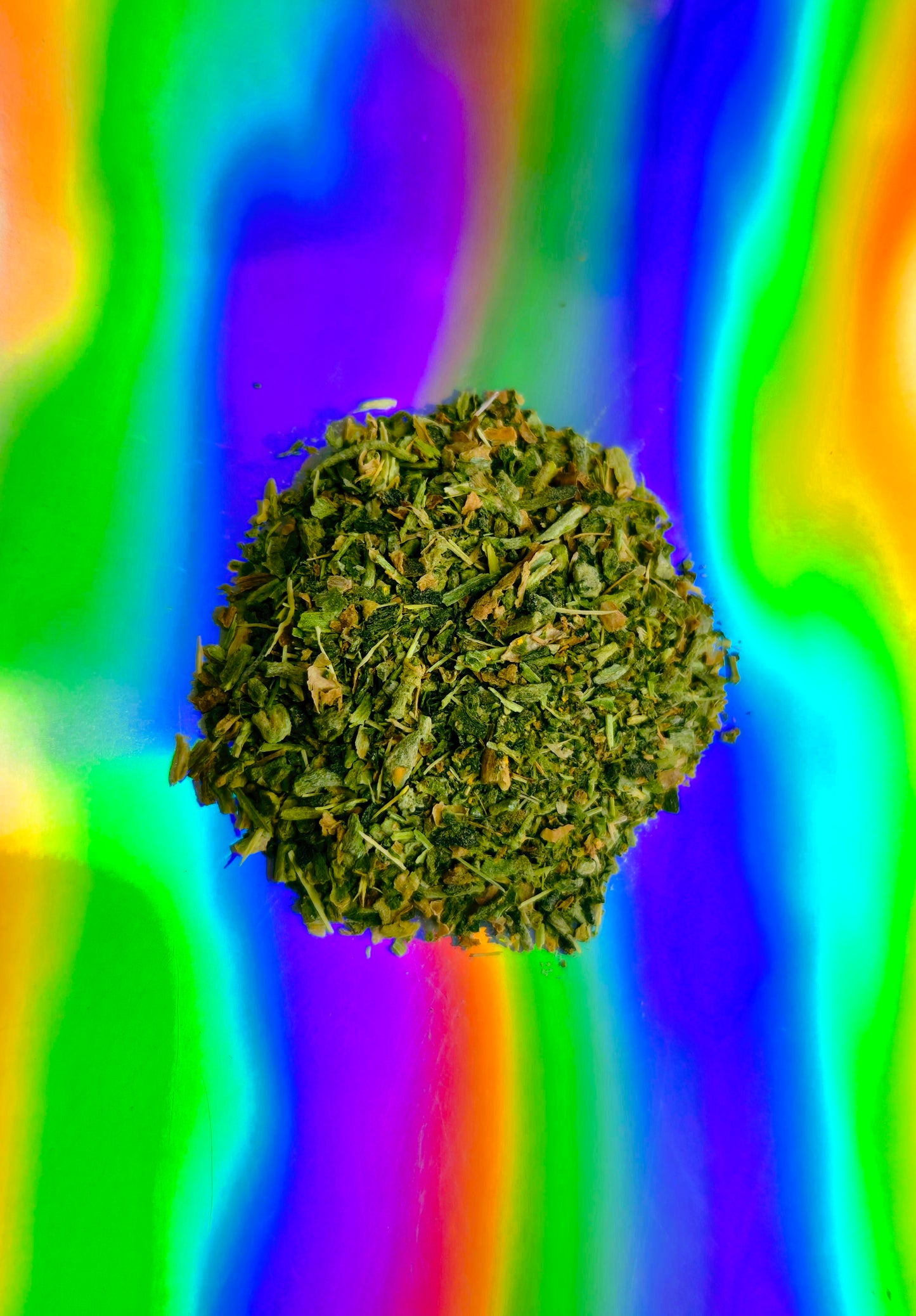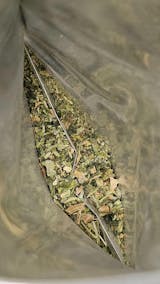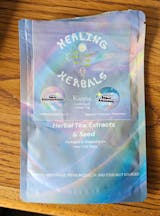
Healing Herbals
Pharmaceutical Kanna Leaf 3.5% Active Alkaloids
Pharmaceutical Kanna Leaf 3.5% Active Alkaloids
Couldn't load pickup availability
Pharmaceutical Kanna Leaf 3.5% Active Alkaloids (High Mesembrine)
Product Description: High Mesembrine Tea Cut Sceletium Leaf is among the strongest tested kanna leaf material available at the moment. Sourced from organic, specialized growers who have bred and developed kanna for the last 30 years, this variety is typically reserved for extract production and rarely sold as raw herb.
High-Potency Warning: Due to its strength, start with a low dose (¼ gram) and adjust only if needed. Not recommended for beginners.
Usage and Directions: Dose, ¼ to ½ gram per use (approx. ¼ tsp)
Methods:
-
Pack a small pinch in the lip and chew
- Brew into tea or blend with other herbs
You can also smoke a small bit of this in a bowl.
Onset: Effects typically begin within minutes, especially when chewed
Ingredients:
-
100% Pharmaceutical Grade Sceletium tortuosum (Kanna) Leaf
- No additives, fillers, or preservatives
Benefits: Many choose kanna over SSRIs because it is a natural occurring SRI as shown in the Blip below or other pharmaceuticals to avoid cognitive fog, emotional dullness, or dependency. While not a substitute without properly discussing with a doctor,
https://pmc.ncbi.nlm.nih.gov/articles/PMC8124331/
Safety and Contraindications:
-
Do not combine with full doses of SSRIs or MAOIs—risk of serotonin syndrome
-
If tapering off prescription medications, consult your healthcare provider
- Pregnant or nursing individuals should not use this product without medical guidance
Disclaimer: This product is not intended to diagnose, treat, cure, or prevent any disease. These statements have not been evaluated by the FDA. If you are pregnant, nursing, taking medications, or have a medical condition, consult a healthcare professional before use.
Share


Works great, quite similar to a low dose of shrooms. I don't feel any rush, which is preferable for me.
First time trying kanna leaf, so I don’t have much to compare it with, but, it does mix great with extract and helps stretch out & bolster the experience.
This leaf is very potent and great on its own as well! It imparts a strong focused energy paired with wonderful relaxant properties. It has a nice sour tinge when packing it for buccal absorption. When I have chewed the material, it tastes briny & kava-reminiscent, but much less bitter.
My only gripe is it seems that the material isn’t completely cleaned before drying, as I’ve noticed there is sand with occasional mini pebbles in the mix, so definitely chew with caution.
Overall, I would definitely recommend this! Trying this leaf makes me want to check out the nutraceutical variant offered here and see how they measure up!
Verry strong effect, i smoked about a half gram on a walk and was feeling like i was in my own world
Amazing!!! Dry Herb Vaped 0.2g of Kanna sandwiched in between Cannabis Sativa 25% THC flower at 365°F. Amazing experience!!! Drank alcohol what a mind blowing combo lmao party! My eyes were huge and music was amazing. Perception heavily slowed. Effects lasted around 4 hours. Drunk Kannaflip is what imma call it 🤣 be careful this extract is no joke! 5/5 recommended for fellow plant based psychonauts 🎶🌌
I haven't tried this specific product yet but everything seems really high quality. Customer service was prompt, courteous, and helpful when I had an issue with payment.






